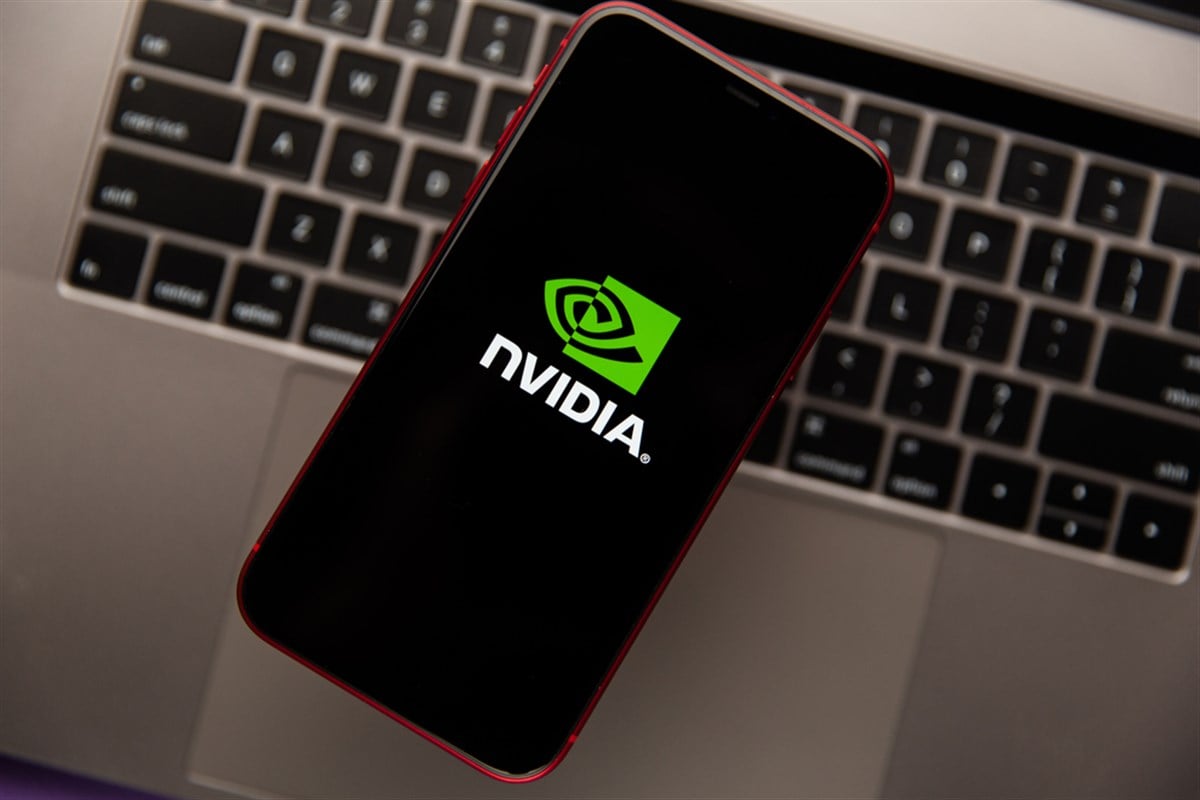
Nvidia (NASDAQ: NVDA) has become synonymous with the artificial intelligence revolution. Nvidia’s stock price has surged over recent months, propelled by a multitude of factors. These factors include its dominant position in the AI chip market, the upcoming stock split, and a rapidly evolving landscape of AI adoption. Nvidia's core business revolves around designing and manufacturing graphics processing units (GPUs), which have traditionally found applications in gaming and data centers. However, the company has emerged as a dominant force in blockchain development and the AI revolution, leveraging its expertise in GPU design to create specialized chips optimized for cryptocurrency mining, machine learning, and artificial intelligence applications.
Nvidia's Dominance in the AI Revolution
Nvidia's dominance in the AI chip market is undeniable. The company holds a significant market share, estimated at 95%, in machine learning and data center GPUs. These specialized AI chips are crucial for training and deploying AI models, enabling a wide range of AI applications from image recognition and natural language processing to autonomous driving and robotics.
The widespread adoption of AI technology is driving substantial growth for Nvidia. AI is rapidly penetrating most industries, from healthcare and finance to manufacturing and retail, creating multiple multi-billion dollar vertical markets. As businesses seek to leverage AI for automation, optimization, and data analysis, the demand for Nvidia's AI chips continues to grow rapidly.
Nvidia's Strong Performance Driven by AI
Nvidia's earnings report, released in May 2024, demonstrated its strong performance, fueled by the increasing demand for AI chips. Nvidia’s financial report revealed record quarterly revenue of $26 billion, an 18% increase from the previous quarter and a staggering 262% increase from the same period a year ago.
This growth was primarily driven by the Data Center segment, which saw a remarkable 427% year-over-year increase in revenue. These strong results highlight the continued momentum in AI adoption and Nvidia's ability to capitalize on this trend.
Nvidia's Stock Split: A Catalyst for Growth?
Nvidia announced a 10-for-1 stock split, a corporate action that increases the number of shares outstanding while lowering the price per share. This move is designed to make Nvidia stock more accessible to a broader range of investors, including individual investors who might have been deterred by the high price per share.
The stock split is expected to have several potential benefits for Nvidia. It could increase trading volume as more investors become interested in the stock due to its lower price point. Moreover, the lower share price could enhance Nvidia's chances of being included in price-weighted indices like the Dow Jones Industrial Average, further increasing its visibility and investor appeal.
The recent surge in Nvidia's stock price leading up to the split likely reflects the anticipated increase in demand and interest. Investors anticipate the split will make the stock more attractive, increasing trading activity and potential price appreciation.
Challenges and Competition for Nvidia
While Nvidia enjoys a dominant position in the AI chip market, it faces challenges from emerging competitors and evolving market dynamics. AMD (NASDAQ: AMD) and Intel (NASDAQ: INTC) are making significant investments in developing their own AI chips, seeking to capture a share of the burgeoning AI market. Nvidia's reliance on third-party manufacturers for production also presents potential risks, as supply chain disruptions could impact the company's ability to meet growing demand.
Furthermore, Nvidia's own clients, such as Amazon (NASDAQ: AMZN), Google (NASDAQ: GOOG), and Microsoft (NASDAQ: MSFT), are increasingly developing their own AI solutions, potentially reducing their dependence on Nvidia's chips. This shift in the market could pose a long-term challenge for Nvidia's growth, requiring the company to constantly innovate and expand its offerings to maintain its competitive edge.
Nvidia's Strategic Plans for the Future
To navigate the competitive landscape and ensure continued growth, Nvidia has unveiled a series of strategic plans for the future. These include developing new AI chip platforms, expanding into new markets, and creating new software offerings to support its AI ecosystem.
The company is focused on releasing new AI chip platforms like Blackwell and Rubin, designed to fuel a new era of AI computing at an even greater scale. The Blackwell platform is expected to support trillion-parameter-scale generative AI models, while the Rubin platform is poised to enhance performance and capabilities further.
With the Spectrum-X platform, Nvidia is also expanding into new markets, including Ethernet-only data centers. This move expands the company's reach to a broader customer base and helps it capitalize on the increasing adoption of Ethernet-based infrastructure in data centers.
To further solidify its position in the AI ecosystem, Nvidia has introduced NVIDIA NIM. This new software offering delivers enterprise-grade generative AI across various environments, including cloud, on-prem data centers, and RTX AI PCs. This initiative aims to streamline the deployment and utilization of generative AI models for businesses, facilitating adoption and driving growth across multiple industries.
While Nvidia's stock split is a significant event, it is just one facet of the company's story. The real driver behind its growth is its dominant position in the AI chip market and its strategic focus on innovation and expansion. However, the company faces competition from emerging players as well as supply chain and client development challenges.
Investors seeking to understand Nvidia's future prospects should consider these factors. The company's dominant market share, its aggressive strategic plans, and the accelerating adoption of AI technology suggest a bright future for Nvidia. However, investors must also acknowledge the emerging competition, supply chain challenges, and evolving market dynamics that could impact the company's trajectory.













